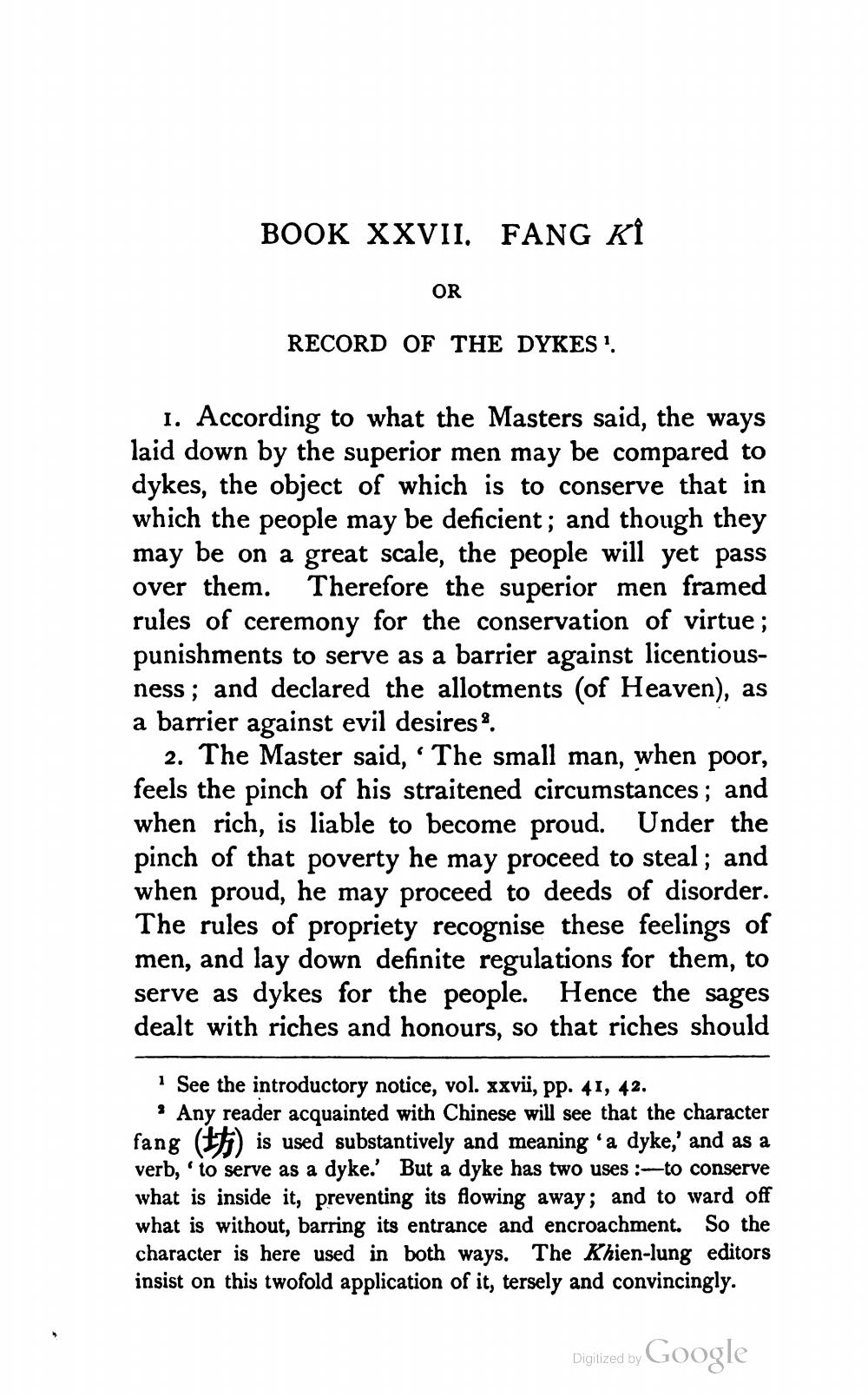________________
BOOK XXVII. FANG KI
OR
RECORD OF THE DYKES !.
1. According to what the Masters said, the ways laid down by the superior men may be compared to dykes, the object of which is to conserve that in which the people may be deficient; and though they may be on a great scale, the people will yet pass over them. Therefore the superior men framed rules of ceremony for the conservation of virtue ; punishments to serve as a barrier against licentiousness; and declared the allotments (of Heaven), as a barrier against evil desires.
2. The Master said, “The small man, when poor, feels the pinch of his straitened circumstances; and when rich, is liable to become proud. Under the pinch of that poverty he may proceed to steal; and when proud, he may proceed to deeds of disorder. The rules of propriety recognise these feelings of men, and lay down definite regulations for them, to serve as dykes for the people. Hence the sages dealt with riches and honours, so that riches should
See the introductory notice, vol. xxvii, pp. 41, 42. * Any reader acquainted with Chinese will see that the character fang (5) is used substantively and meaning a dyke,' and as a verb, 'to serve as a dyke.' But a dyke has two uses :-to conserve what is inside it, preventing its flowing away; and to ward off what is without, barring its entrance and encroachment. So the character is here used in both ways. The Khien-lung editors insist on this twofold application of it, tersely and convincingly.
Digitized by Google




